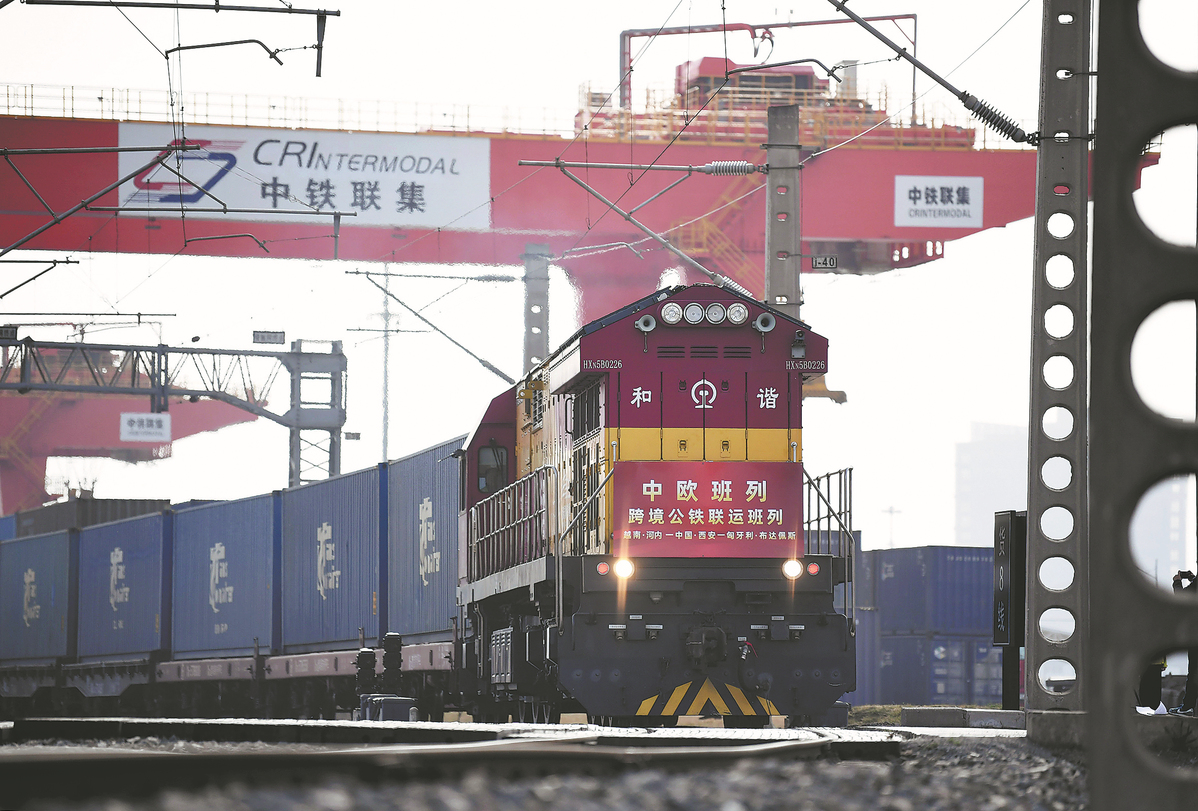
President Xi Jinping's choice to visit France, Serbia and Hungary during his just-concluded Europe trip shows China is willing to strengthen trade and economic relations with Europe, especially with the three countries which have, each in their own way, shown genuine interest in doing business with China. It also shows that those countries which, in various forms, have indicated their unwillingness to do business with China have evoked a less enthusiastic response from China.
Both Hungary and Serbia are members of the China-proposed Belt and Road Initiative, the largest infrastructure development project which has already mobilized nearly US$1 trillion in investment in Asia, Africa and other regions, contributing to the social and economic development of those regions. Both Serbia and Hungary have welcomed Chinese companies to invest in their country. As a matter of fact, Hungary has a large share of Chinese green-field investment in Europe. And to attract more Chinese investment, Serbia became the first European country to affirm that it would build a community with a shared future with China.
That not only helped boost bilateral trade and promote investment, but also strengthened cooperation between the two sides in their efforts to promote the development of Asia and Africa
France is not part of the Belt and Road Initiative, but French President Emmanuel Macron's support for increasing trade with China, combined with the substantial investments by French companies in China, compensates for the lack of France's formal membership of the initiative. The Chinese leader's visit to France also highlights the sense of balance in Sino-French ties — Macron visiting China last year and the Chinese leader repaying the visit this year.
READ MORE: Experts hail fruitful results of Xi's visit
Although the Chinese leader didn't visit Italy this time, Sino-Italian relations had been developing extremely well during the past two decades. In 2004, the two countries signed a comprehensive strategic partnership agreement, and in 2019, Italy joined the Belt and Road Initiative, elevating bilateral ties to a new level. That not only helped boost bilateral trade and promote investment, but also strengthened cooperation between the two sides in their efforts to promote the development of Asia and Africa.
Unfortunately, and without offering any sound reason, the current Italian government decided to withdraw from the Belt and Road Initiative in December last year. Italian Prime Minister Giorgia Meloni and Foreign Minister Antonio Tajani have managed to only justify their decision with the far-from-reality logic that Italy exited the Belt and Road Initiative because it did not bring any advantages to the country and, instead, the trade deficit increased in favor of China. The Italian government also said that despite the decision to exit the initiative, the relationship between Italy and China will remain solid.
I could not disagree more with the position of the Italian government, and I have personally warned it that it was making an uninformed and wrong decision, which would cause serious damage (as seems to be the case now) to the cooperation between the two countries and cannot be repaired in the short term.
The Italian government did not want to hear it. Anyone who knows a little bit about Chinese culture and the Chinese way of doing business would realize that being the only country in the world to exit the Belt and Road Initiative on the 10th anniversary of the launch of a project dear to China and just days before the 700th death anniversary of Marco Polo, who served in the court of Emperor Kublai Khan of the Yuan Dynasty (1271-1368) and helped establish Italy-China relations, is not the best way to keep Sino-Italian ties "solid".
And anyone who knows a bit of economics would understand that the trade deficit is not, in itself, a measure of advantage or disadvantage for a country. In fact, the increasing imports from China into Italy have actually helped maintain the continuity of the components' supply chains for Italy's manufacturing industry and have had a positive deflationary effect on the Italian economy at a time when inflation in Europe and Italy reached 10 percent.
With regard to Italy's exports to China, perhaps unknown to Meloni and Tajani, they have actually increased by 33 percent since the country joined the Belt and Road Initiative, much more than our direct competitors, France which witnessed about 10 percent increase and Germany whose exports shrunk during the same period.
ALSO READ: Europe, China need each other politically and economically
It is not entirely clear why a country would exit from a non-binding agreement that carries no obligations, even if it hadn't brought any benefits, not to mention such claims are not true. In finance, we call it "optionality value". And no smart trader would give it up.
My assessment is that, despite the customary and polite statements by Chinese officials and given the fact that it's Italy which indicated its lack of interest in cooperating with China by withdrawing from the initiative, one should not be overly optimistic about the prospects of cooperation between the two countries.
Hopefully things will change again in Italy, and it will be back in the Belt and Road Initiative.
The author is former undersecretary of State at the Italian Ministry of Economic Development.
The views don’t necessarily reflect those of China Daily


